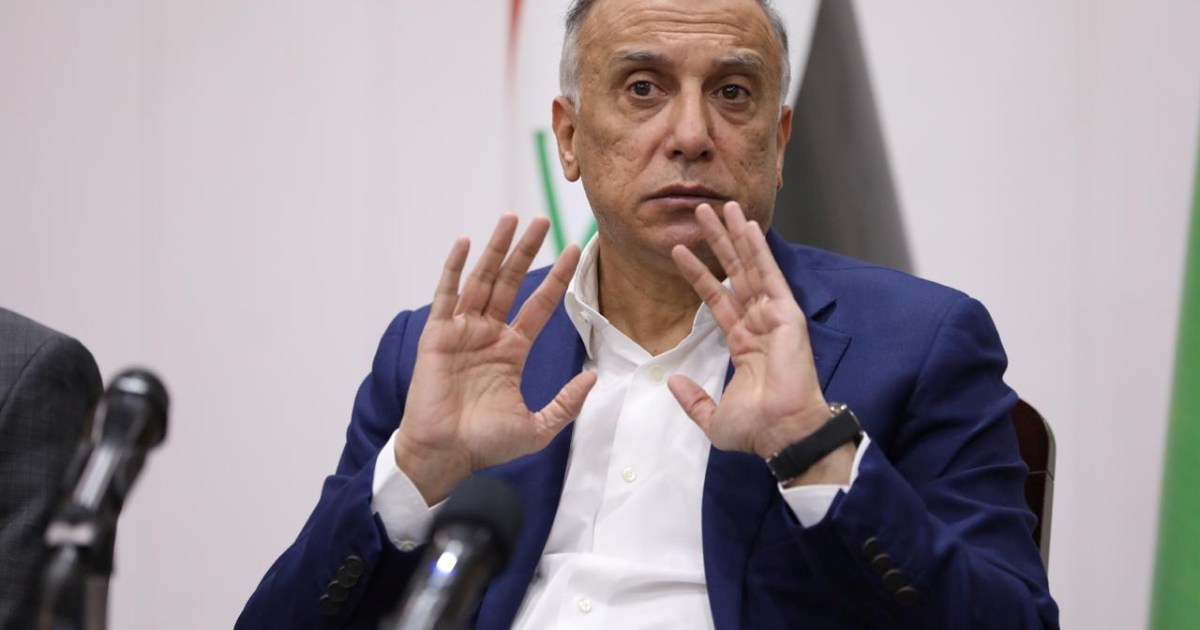Powerful political blocs in Iraq rejected a series of changes made by Prime Minister Mustafa Al-Kazemi, affecting 15 security, economic, administrative and financial officials, claiming that they relied on the "principle of quotas."
The Saeron Alliance led by the leader of the Sadrist movement, Muqtada al-Sadr (54 seats in parliament out of 329) said that the list of Al-Kazemi appointments was dominated by the partisan and political framework, and considered that this means a return to the same previous circle, which represents a setback in the reform project.
The coalition rejected what it described as the useless procedure, which causes great harm to the political process, and declared its innocence from the list.
Because it does not represent his direction in correcting wrong paths.
For its part, the Al-Fateh Alliance led by Hadi Al-Amiri (48 seats), which includes most of the "popular crowd" factions, announced its rejection of the series of changes made by Al-Kazemi.
Al-Amiri said that he was not aware of the changes, which "there was much talk about as a return to the quota system."
In turn, the State of Law coalition led by former Prime Minister Nuri al-Maliki (26 seats) said that the changes could not leave the quota system;
Rather, it radicalized him away from professionalism and the investigation of national competencies and experiences.
The coalition added that it had warned of such changes "since the beginning of the formation of the current government, which could not leave the quota system, which led us to reservations about the government formation."
Governmental justification
On the other hand, Ahmed Mulla Talal, a spokesman for the Prime Minister, said in a press conference that "the principle that Al-Kazemi followed in assigning these figures is integrity and competence, and there is nothing to prevent the existence of competent and honest personalities belonging to political parties," adding that "the controversy over appointments It is normal in democratic systems. "
Al-Kazemi made changes yesterday in high-ranking positions in the state, including the appointment of Mustafa Ghaleb as governor of the Central Bank of Iraq, according to the official Iraqi News Agency.
The agency said that Al-Kazemi appointed Suha Dawood Elias Al-Najjar as head of the National Investment Commission, Salem Jawad Abdul Hadi Al-Jalabi as director of the Iraqi Trade Bank, and Faisal Wissam Al-Haimas as head of the Securities Commission.
The changes also included the appointment of Engineer Manhal Aziz Raouf Al-Haboubi as Secretary of Baghdad, Sami Al-Masoudi as Chairman of the Hajj and Umrah Authority, Alaa Jawad Hamid as Chairman of the Integrity Commission concerned with the pursuit of corruption, former Minister of Defense Khaled Al-Obaidi, Deputy Operations Affairs for the National Intelligence Service, and Faleh Yunus Hassan as Deputy of the National Security Agency.
Over the past years, positions have been distributed among the prominent political forces according to a system known as quotas, which has brought incompetent party figures to high-ranking positions in the state.
Since the formation of the Al-Kazemi government last May, he has made wide changes at the level of state officials, especially security leaders and administrative officials.

